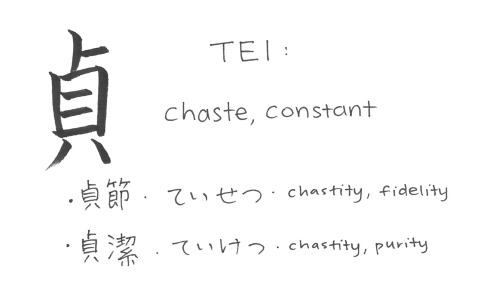#constant
Life is good xD #sushi #gyoza #food #constant #culinary #we #do #because #ilove #gyozaaaaaaa (with Sakis) (at Surabaya Town Square#SuShiHaNa)
Post link
…A particularly vital question is the relationship between economic theory and history. Here again, as in so many other areas of Austrian economics, Ludwig von Mises made the outstanding contribution, particularly in his Theory and History.32 It is especially curious that Mises and other praxeologists, as alleged “a priorists,” have commonly been accused of being “opposed” to history. Mises indeed held not only that economic theory does not need to be “tested” by historical fact but also that it cannot be so tested. For a fact to be usable for testing theories, it must be a simple fact, homogeneous with other facts in accessible and repeatable classes. In short, the theory that one atom of copper, one atom of sulfur, and four atoms of oxygen will combine to form a recognizable entity called copper sulfate, with known properties, is easily tested in the laboratory. Each of these atoms is homogeneous, and therefore the test is repeatable indefinitely. But each historical event, as Mises pointed out, is not simple and repeatable; each event is a complex resultant of a shifting variety of multiple causes, none of which ever remains in constant relationships with the others. Every historical event, therefore, is heterogeneous, and therefore historical events cannot be used either to test or to construct laws of history, quantitative or otherwise. We can place every atom of copper into a homogeneous class of copper atoms; we cannot do so with the events of human history.
This is not to say, of course, that there are no similarities among historical events. There are many similarities, but no homogeneity. Thus, there were many similarities between the presidential election of 1968 and that of 1972, but they were scarcely homogeneous events, since they were marked by important and inescapable differences. Nor will the next election be a repeatable event to place in a homogeneous class of “elections.” Hence no scientific, and certainly no quantitative, laws can be derived from these events.
Mises’s radically fundamental opposition to econometrics now becomes clear. Econometrics not only attempts to ape the natural sciences by using complex heterogeneous historical facts as if they were repeatable homogeneous laboratory facts; it also squeezes the qualitative complexity of each event into a quantitative number and then compounds the fallacy by acting as if these quantitative relations remain constant in human history. In striking contrast to the physical sciences, which rest on the empirical discovery of quantitative constants, econometrics, as Mises repeatedly emphasized, has failed to discover a single constant in human history. And given the ever-changing conditions of human will, knowledge, and values and the differences among men, it is inconceivable that econometrics can ever do so.
Far from being opposed to history, the praxeologist, and not the supposed admirers of history, has profound respect for the irreducible and unique facts of human history. Furthermore, it is the praxeologist who acknowledges that individual human beings cannot legitimately be treated by the social scientist as if they were not men who have minds and act upon their values and expectations, but stones or molecules whose course can be scientifically tracked in alleged constants or quantitative laws. Moreover, as the crowning irony, it is the praxeologist who is truly empirical because he recognizes the unique and heterogeneous nature of historical facts; it is the self-proclaimed “empiricist” who grossly violates the facts of history by attempting to reduce them to quantitative laws…
— Murray Rothbard, Praxeology: Methodology of Austrian Economics
1238/2000
JLPT: N1
School Grade: Junior high school
This character is a combination of ⺊ a variant of divination (crack) and 鼎 round kettle (here simplified as 貝). Here 鼎/貝 is a phonetic element signaling the on’yomi, but also being used to express “request/seek.” Originally 貞 meant to “seek to learn the will of the gods by divination.” Its current meanings of “chastity” and “virtue” are thought by some to be a borrowed meaning. Others believe it to be an extended meaning, as in “acting in a manner approved of by the gods.”
Post link
*through gritted teeth* it doesn’t have to be perfect, it just has to be done. it doesn’t have to be perfect, it just has to be done. it doesn’t have to be-
You’re like a nightmare
No matter how much I try not to think about you, I do so more
You’re like a ghost
You aren’t here but your remains haunt me
You’re like a disease coming back to infect me over and over
I’m suffering because of you
Because of what you did
I’m haunted by the thought of you
Filled to the brim with fear and anxiety towards you
Thinking of you, whether past or unlikely future, makes me anxious
And I can’t stop
As though my anxiety, my fear towards you is like a drug
I keep coming back for more
I will never feel or be okay with what you did to me
I will never forget what you did or how I felt during
You left a scar that will never go away
And I’m okay with that…
But I’m not
I’m not okay with the constant reminders
I’m not okay seeing pictures of you, even your name
I’m not okay being subconsciously reminded of you,
Thinking of coming across you and being filled with anxiety when and if I do
I’m not okay because you made me not okay
I want to be okay, I want to be more than okay
Why can’t I be okay?
Why do I feel chained, haunted by you?
I just want to be free of these chains
Let me break free, please
-D.S.
3/31/19 and 4/1/19
Void
Trapped
Trapped in a void of nothing
That’s how I feel
That nothing matters
That theres no point in doing anything
Let me just be here and breathe
Take away the long list of to-dos
I hold no desire to do them
Only to do so in order to go back to doing nothing
Trapped in a neverending void
Trapped in a constant state of depression
How much longer must I be trapped?
Hasn’t it been long enough?
-D.S.
4/3/19



